Company
GetMega
Role in Project
UX Design, UI Design, Micro Interactions

Poker is a complex and high stakes game where skilled players analyse every action of the opponent and takes decision quickly. Adding a layer of real money makes it even more complicated with a new set of problems to solve.
"To design an easy & scalable real money Poker game to play high stake games confidently."
Most of the Poker apps in the market resemble the real world Poker setup. It can reduce the learning curve, but it won't be an ideal digital experience.
After studying the competitors, we had few observations that we need to focus on while designing the interface.

1. Focus on important information
Through the research, we realised that unnecessary graphics like a poker table, dealer, casino setup adds a lot of visual noise. We wanted to prioritise important information and avoid useless elements on the interface.
2. Design must be scalable
Poker gets complicated with the number of players. Multiple winners, Split pots or some rare cases which no one can imagine. There are infinite ways a game can end.
3. Ease of use
Poker players have so much to think and process during the gameplay. So the design has to be obvious so that users can focus on their strategy.
4. Trust
It is easy to blame the software for technical gaps. So we decided to convey that our system is unbiased through design.
I drew a quick round of sketches to visualise various layouts of a Poker table to help me decide which direction to explore.
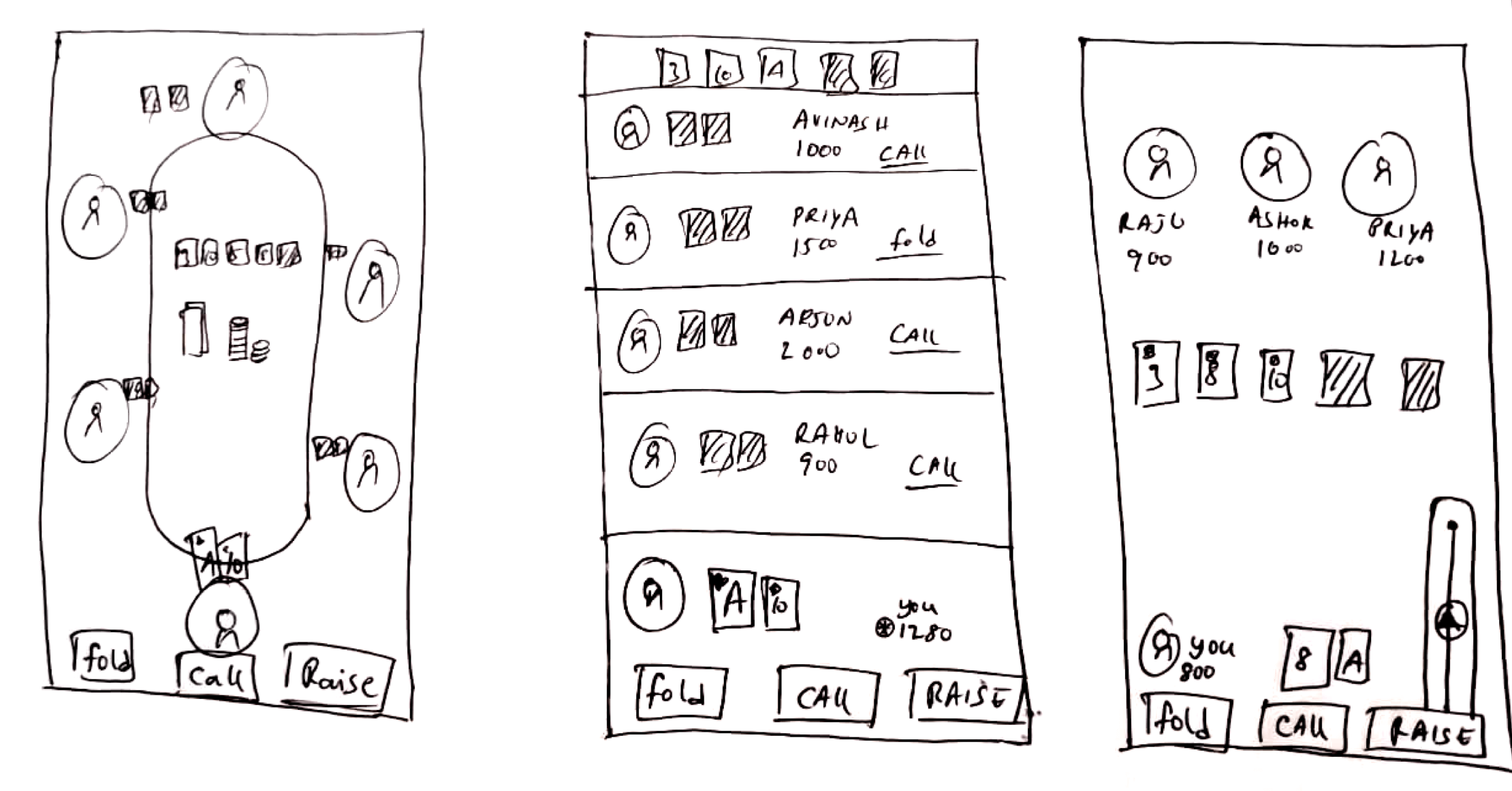
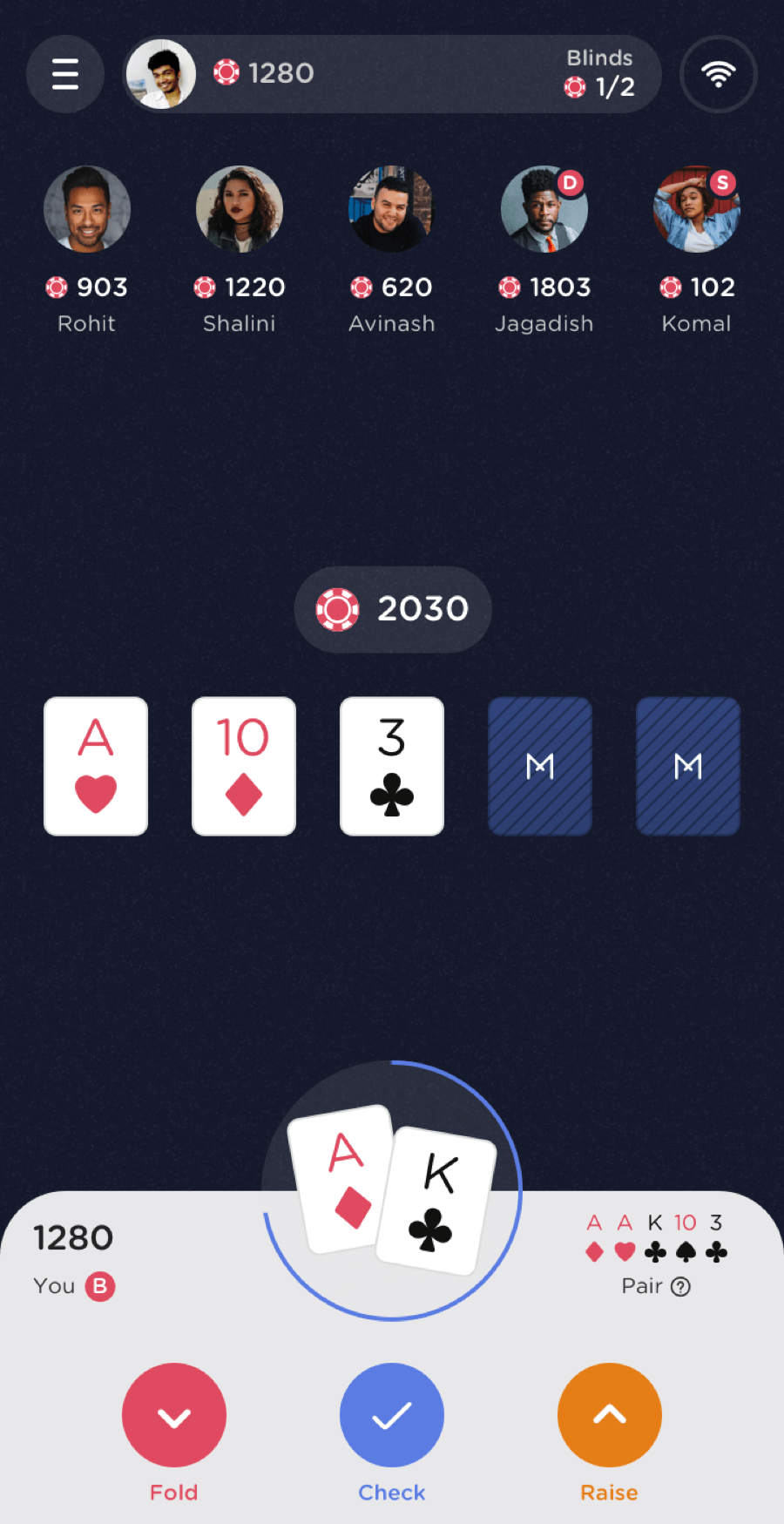
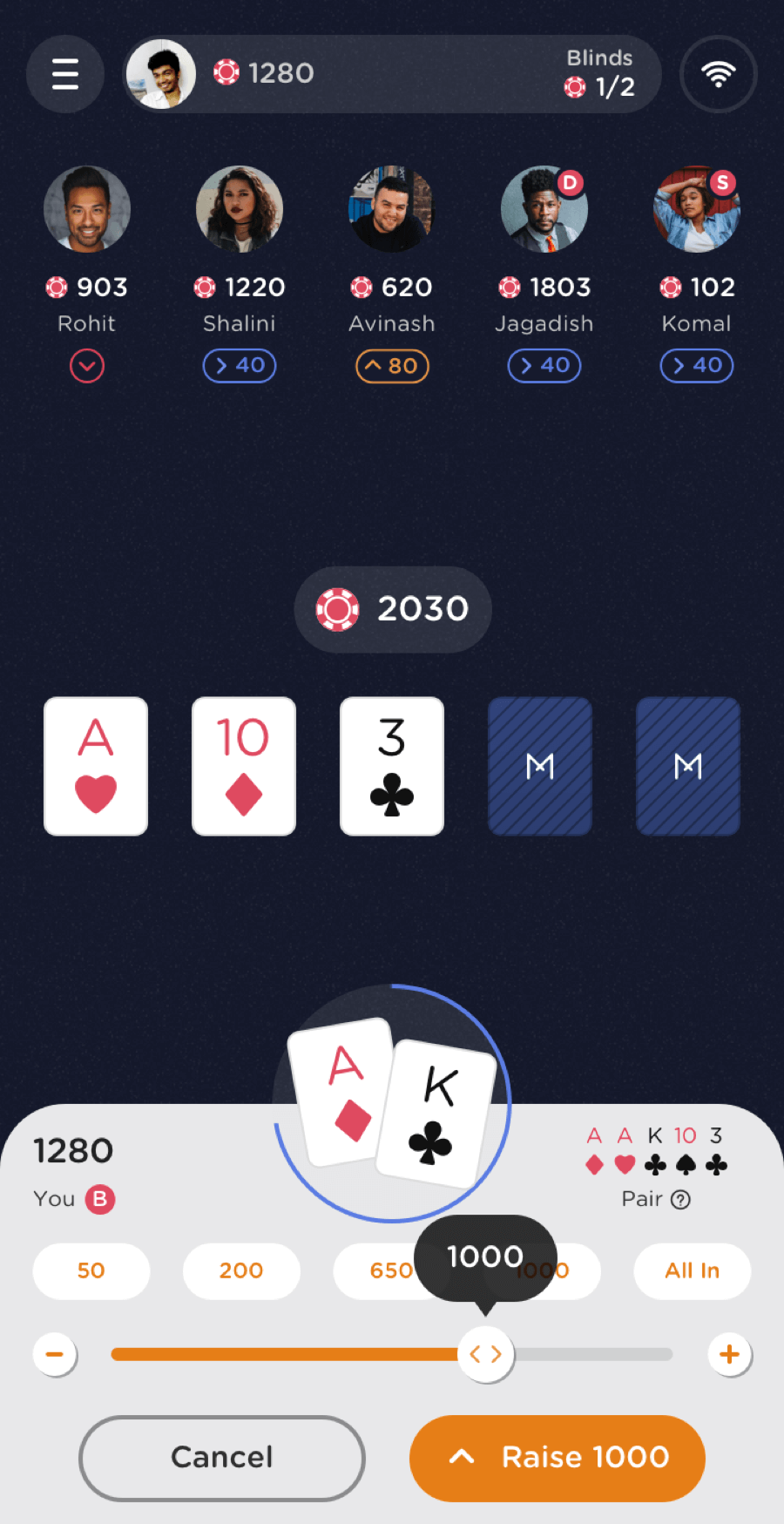
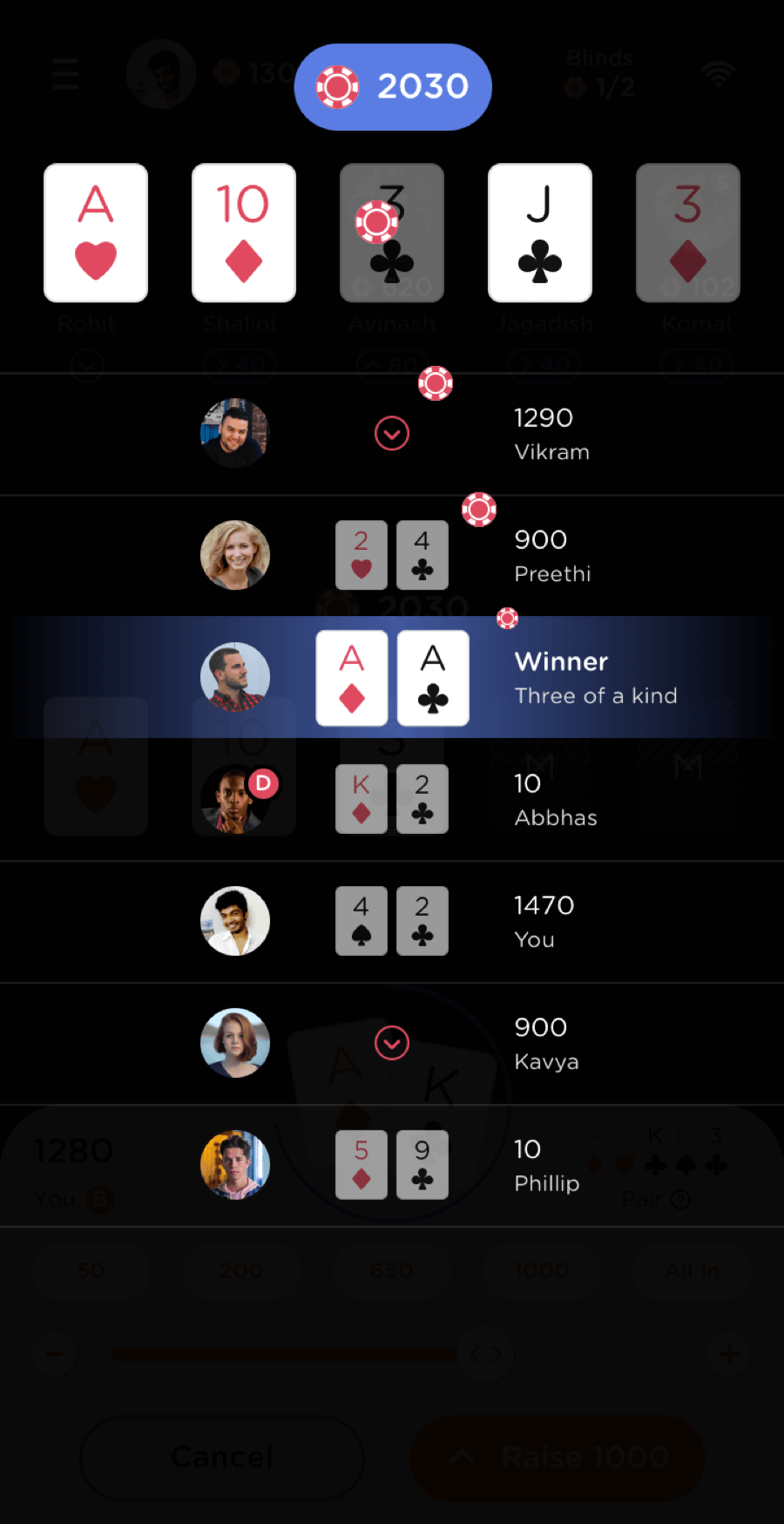
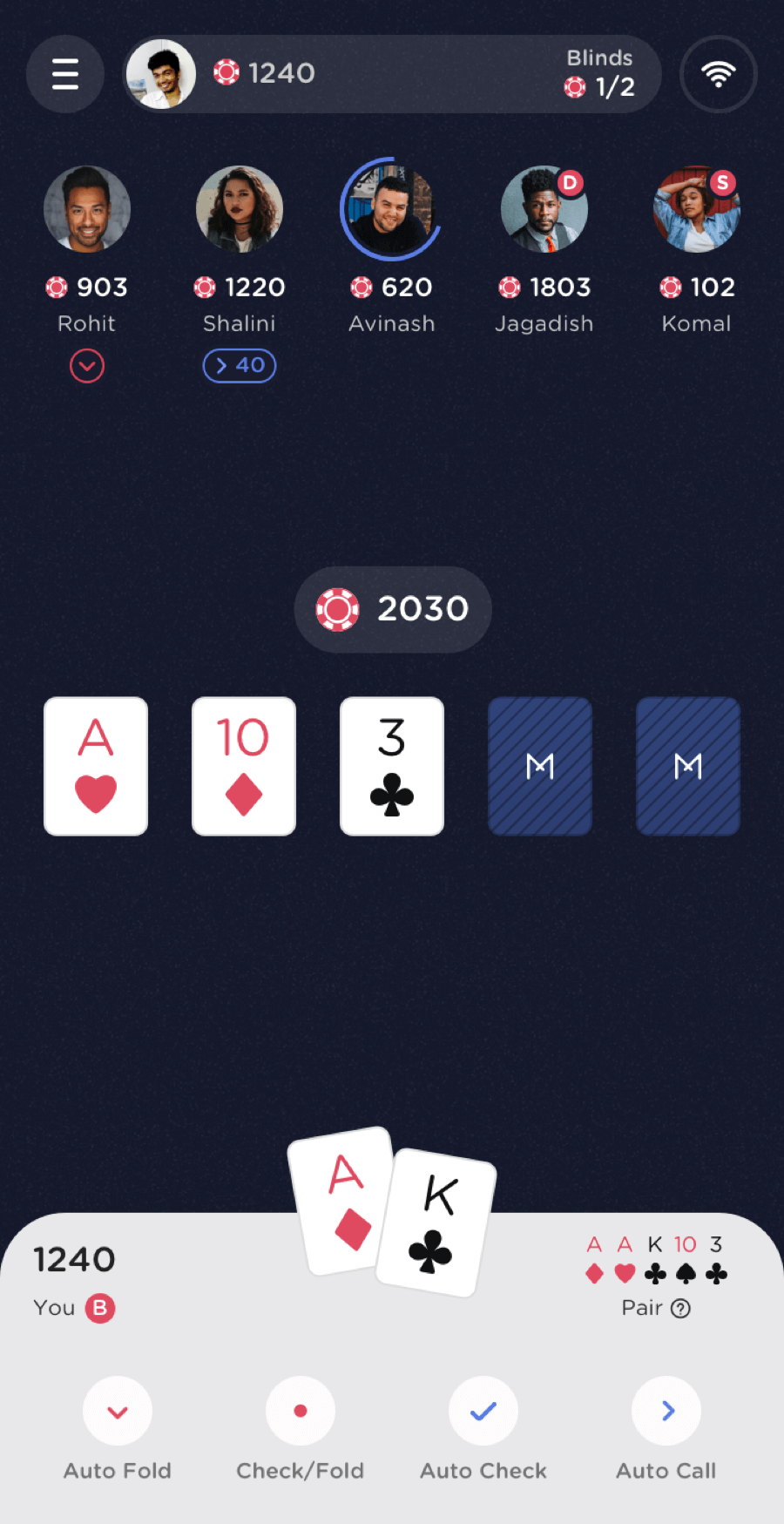
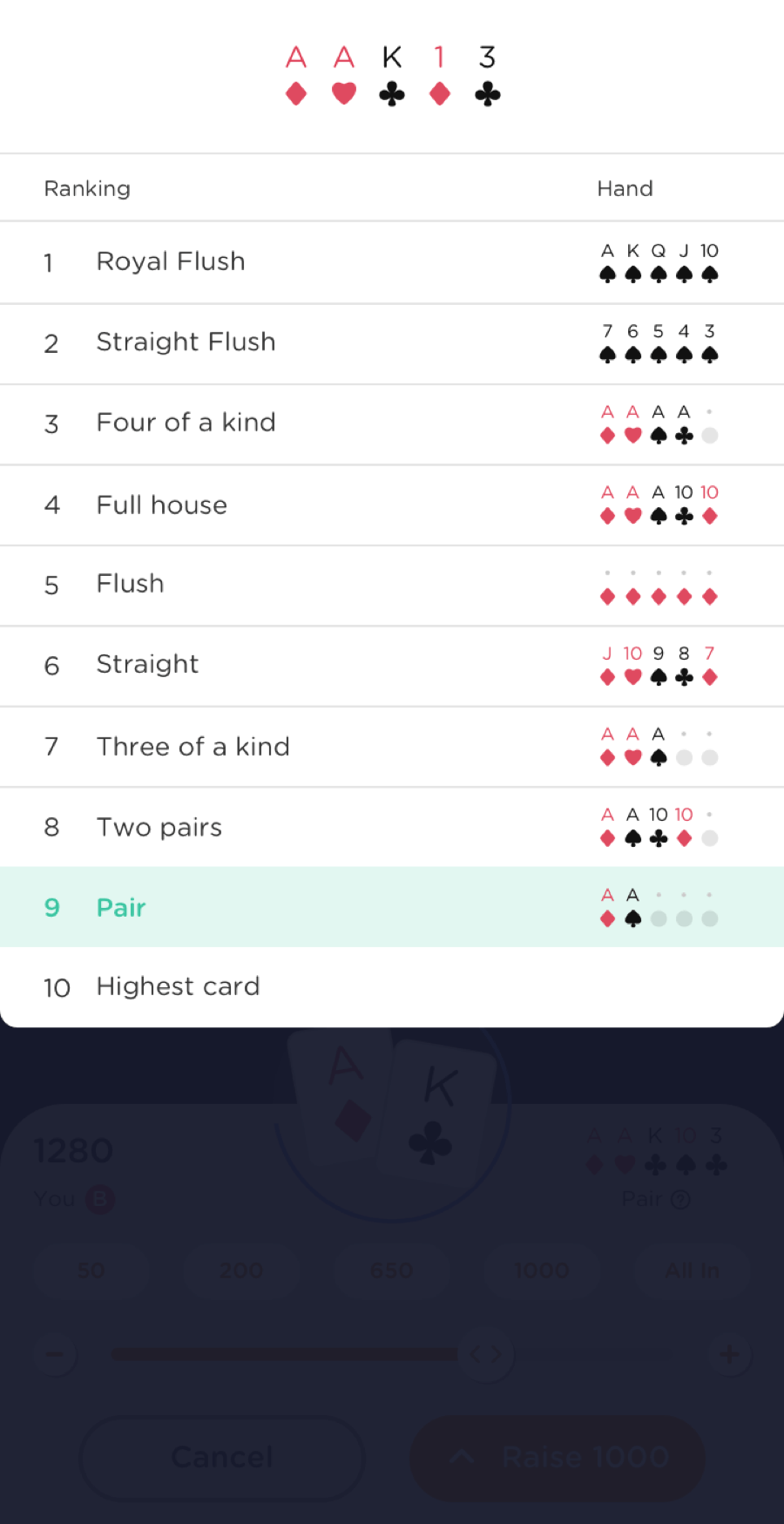
"Progress over perfection!"
Instead of wasting time on a perfect solution, we designed the game with basic functionalities and pushed it to production. After that, we gathered user feedback and iterated based on the issues we found. We kept improving the experience and added advanced features.
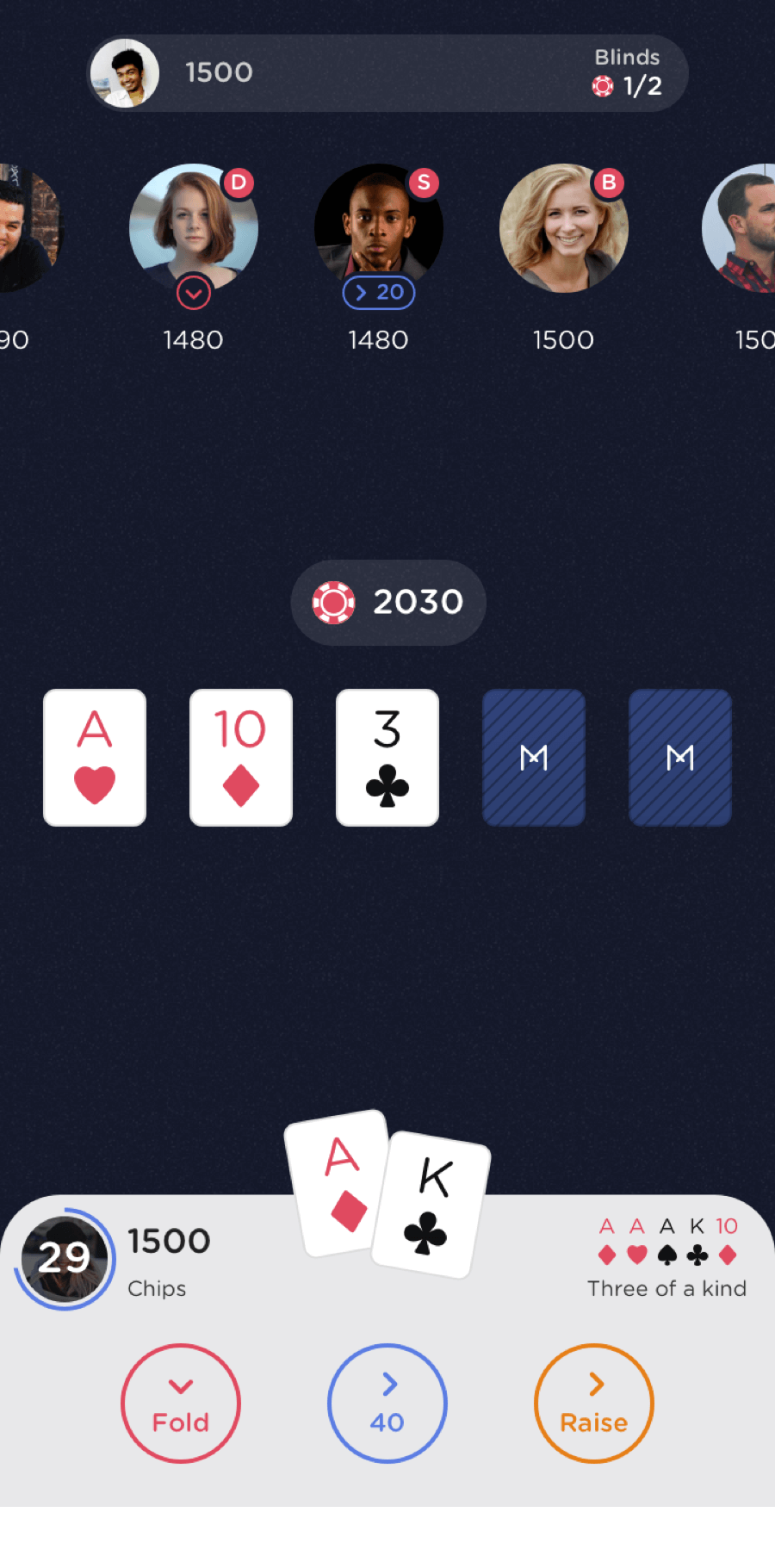
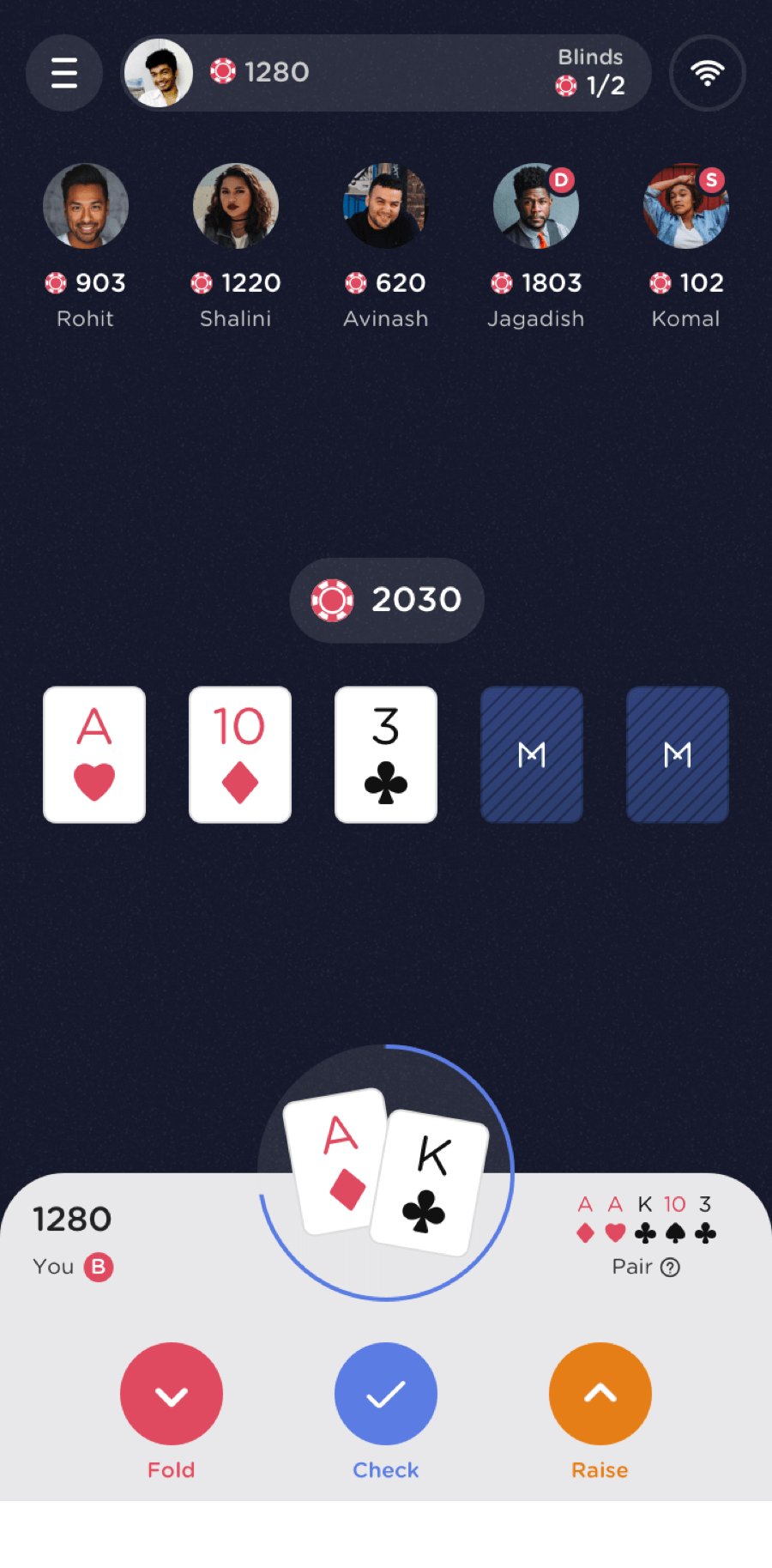
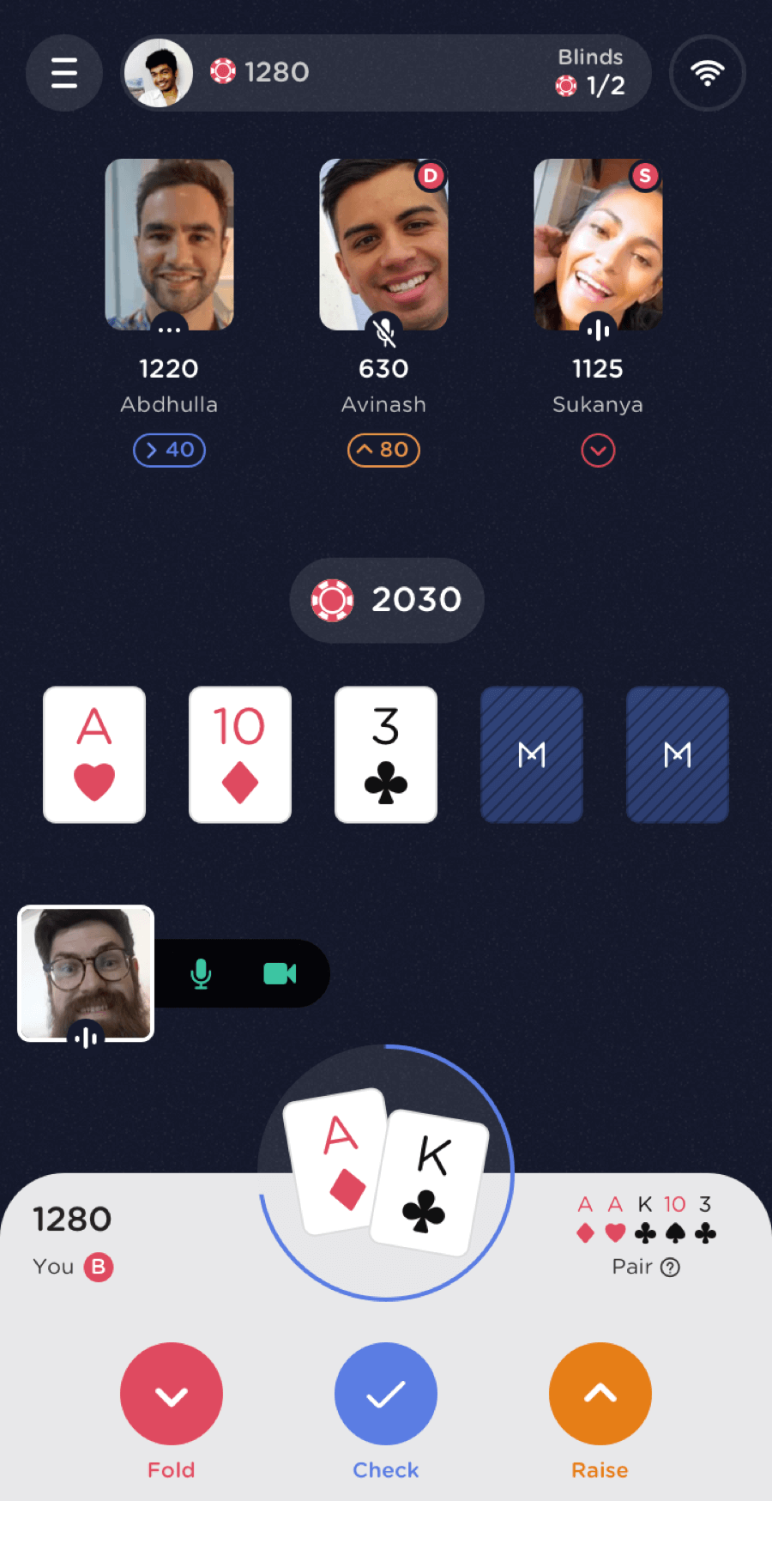
1. Social widget
Opponents are the engaging part of multi-player games. We came up with the 'Social widget' concept to show the opponents information and action always.
It helps a player know the opponent, their bet, stack, how much time they are taking and even their connectivity or battery status.
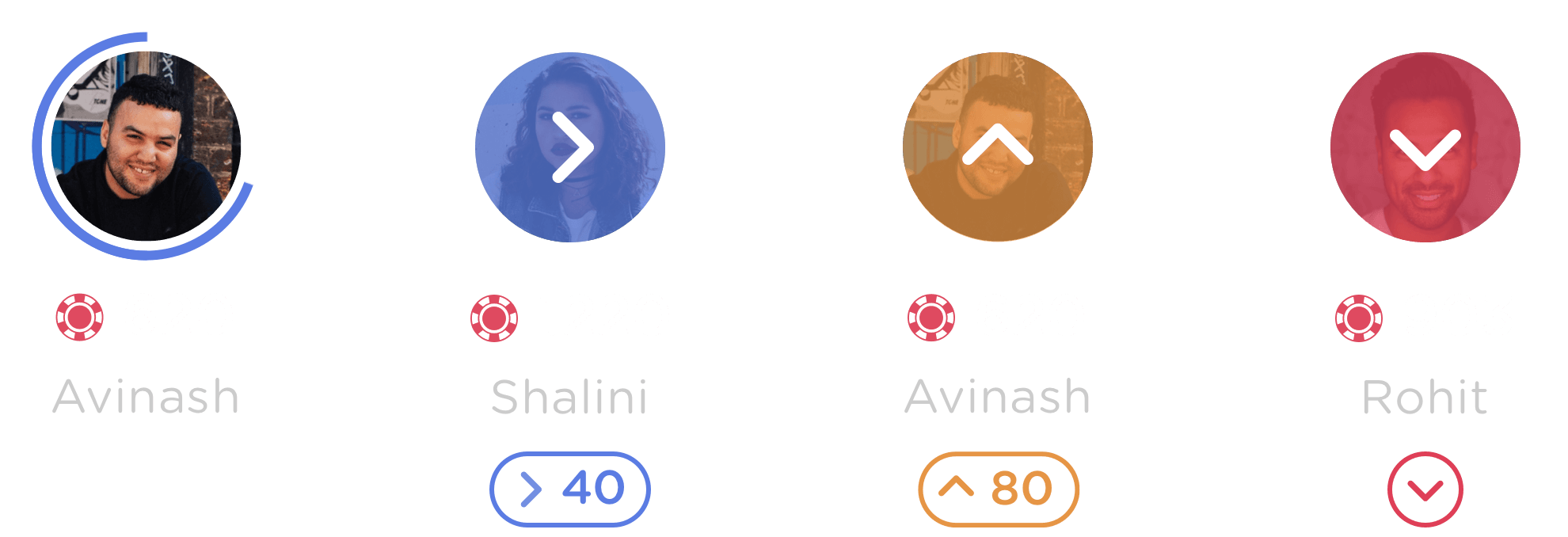
2. Showdown
The most common problem faced by digital poker players is winnings information. We solved it using a scalable showdown state which consolidates the ranking and winnings of the players. It opened up windows for organic growth by making it brag-worthy content.
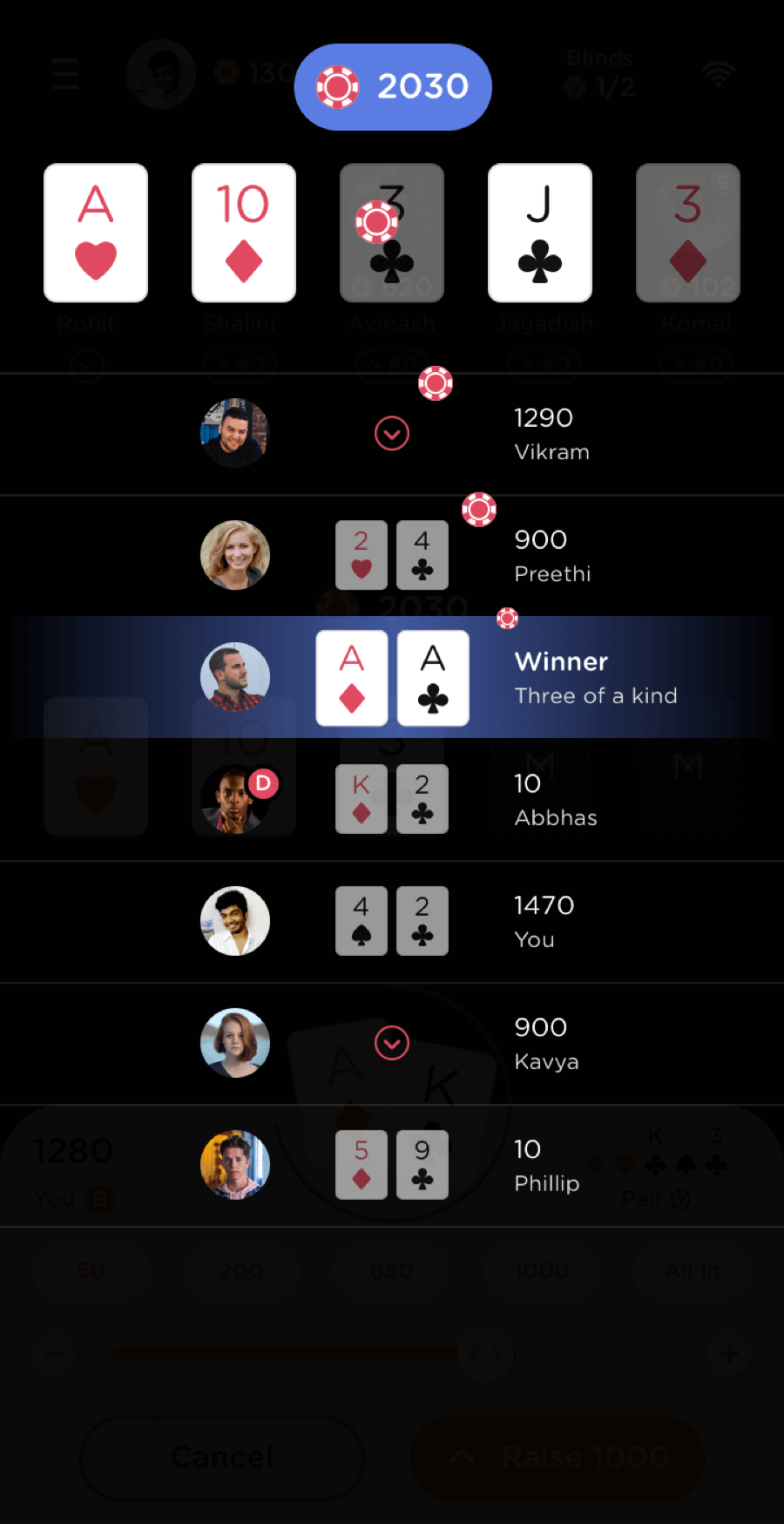
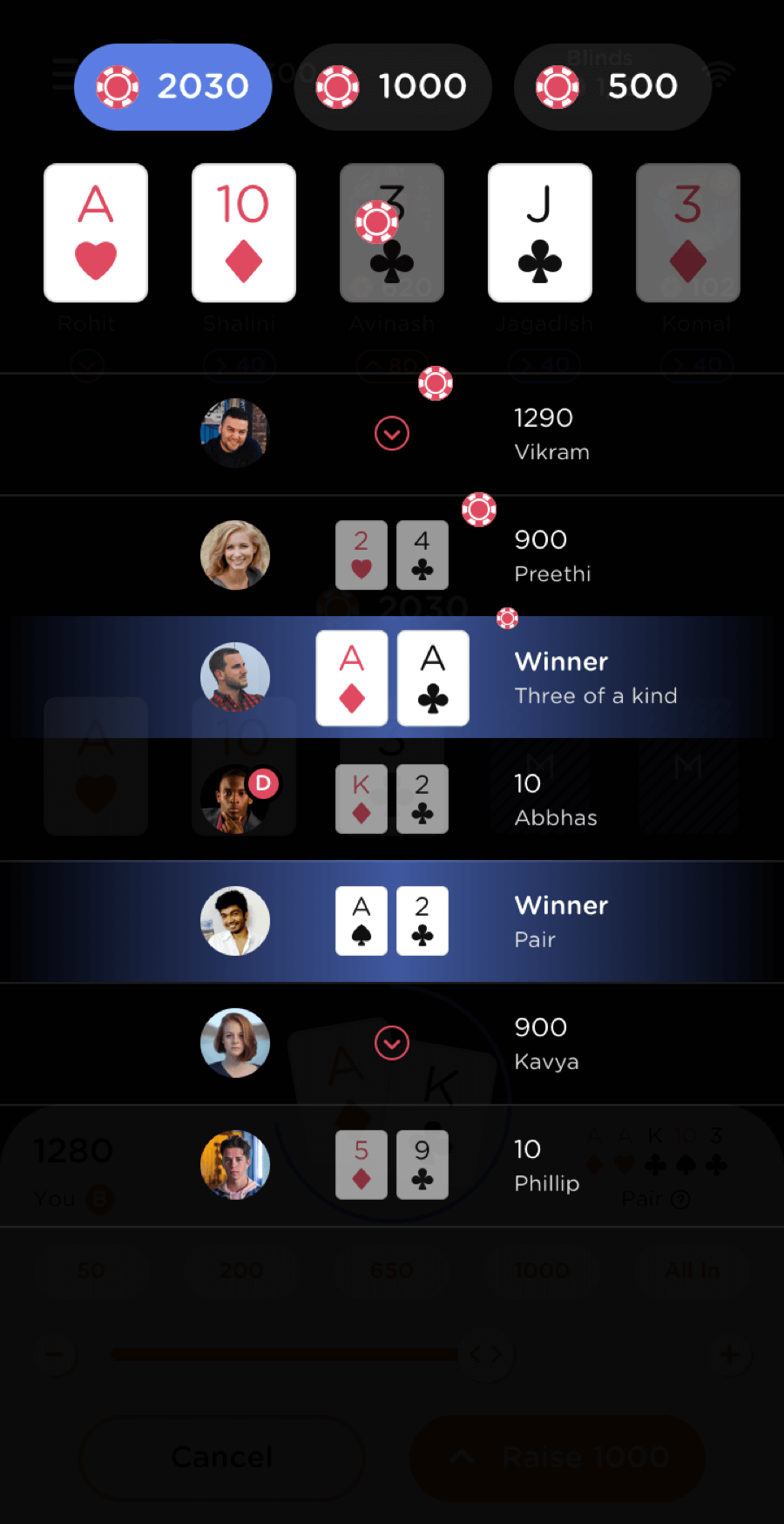
3. Micro Interactions & Animations
After two releases we stumbled upon a problem. Some players felt that our game engine doesn't shuffle the cards properly. Users blamed the system for their losses. So we tried adding animations to reinforce that system shuffles cards in every round.